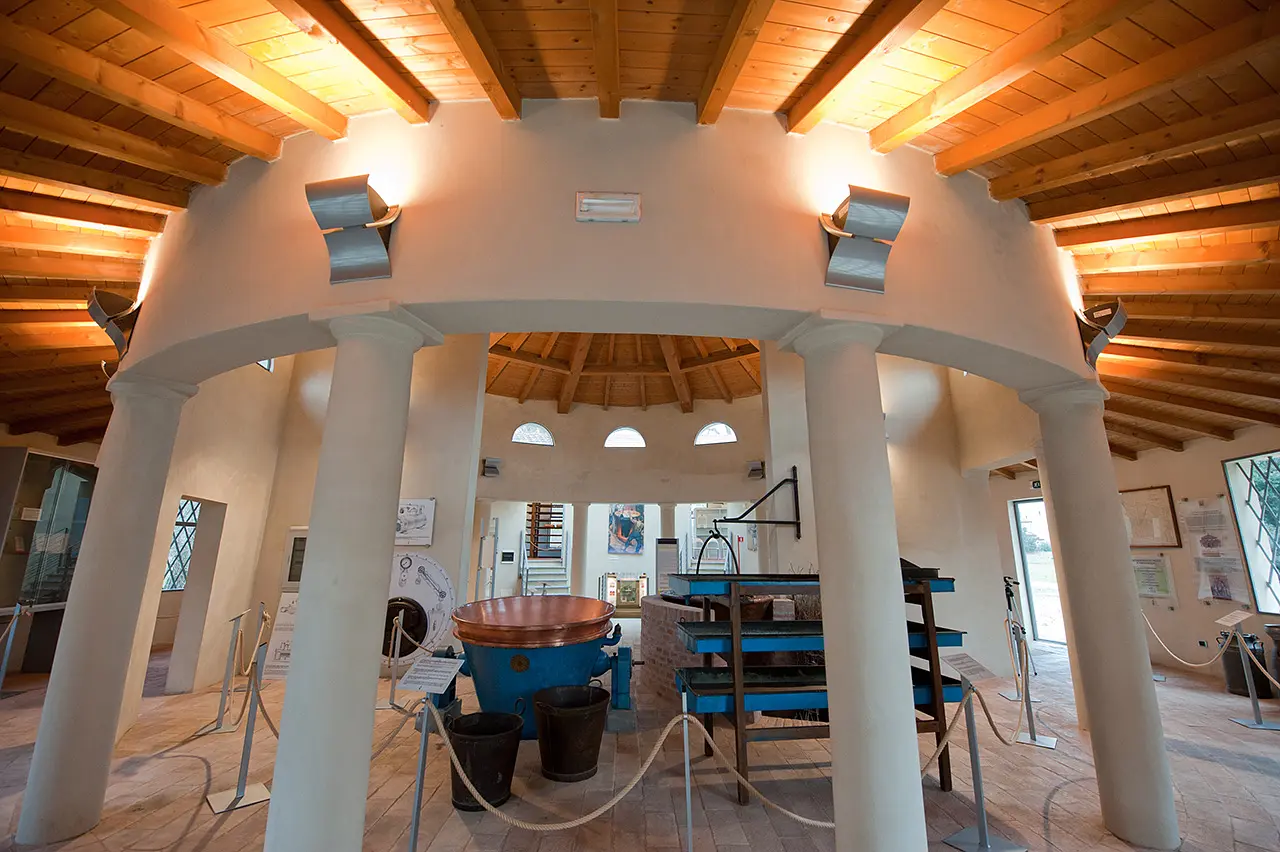SHARRYLAND


Parmesan Cheese Museum
The appropriate place to follow Boccaccio into the land of Bengodi


Where is

What it is and where it is
In the province of Parma, in these lands that still evoke Vedic echoes and smell of the flavors of the "Strada del Culatello," is Corte Castellazzi. Consisting of a farmhouse with stables, barn and a dairy, it houses the headquarters of the Museum of Parmigiano Reggiano, a noble cheese of the Italian tradition. Corte Castellazzi was not a random choice: its structures, besides being very beautiful, also boast a peculiarity: the dairy is a precious circular building with a colonnade and is the only one of its kind left in Italy. A true masterpiece.
Why it is special
The exhibition has more than 120 objects dating from the 1800s to the first half of the 20th century. These, together with a hundred images, drawings and period photos, illustrate the evolution of milk processing techniques, the stages of aging, marketing and the fundamental role of the Parmigiano Reggiano Consortium in protecting quality. All of this, inside what while being a custody, fully deserves to be considered an integral part of the collection: the circular dairy, used for centuries to produce cheese.
Not to be missed
In the basement and adjoining rustic rooms, two other themes related to the main one were chosen to be developed. Thus it is that in the rooms annexed to the main body of the museum there is a display of tools and everyday objects that tell us about rural civilization focusing on the themes of food. In the underground brine room, on the other hand, there is an exhibition dedicated to the countless imitations of Parmigiano Reggiano existing abroad.
A bit of history
It was the monks, in particular, the Benedictines and Cistercians from the plains of Parma and Reggio Emilia, who were the first producers of Parmigiano Reggiano, driven by the search for a cheese that would last. Salt from the salt pans of Salsomaggiore, made a fundamental contribution to solving the problem and thus to the production of this cheese, so distinctive and tasty that it attracted the attention of the Duke of Parma. In the early 17th century it was Ranuccio I Farnese who made its designation of origin official , defining that only the product made on his estates could be called Parmigiano.
Curiosity
One of the earliest literary records of Parmigiano Reggiano is left to us by Giovanni Boccaccio, who in the 14th century, in his Decameron, wrote: "In the land of Bengodi, where he who sleeps more sleeps more earns, there is an enormous mountain of grated cheese from which large ravioli and macaroni of every shape cooked in capon broth tumble."
Enter the Map of Italy's Undiscovered Wonders and find treasures where you least expect it... Inspire, Recommend, Share...
Collections
The Map thanks:
Enter the Map of Italy's Undiscovered Wonders and find treasures where you least expect it... Inspire, Recommend, Share...
Where is

Collections

